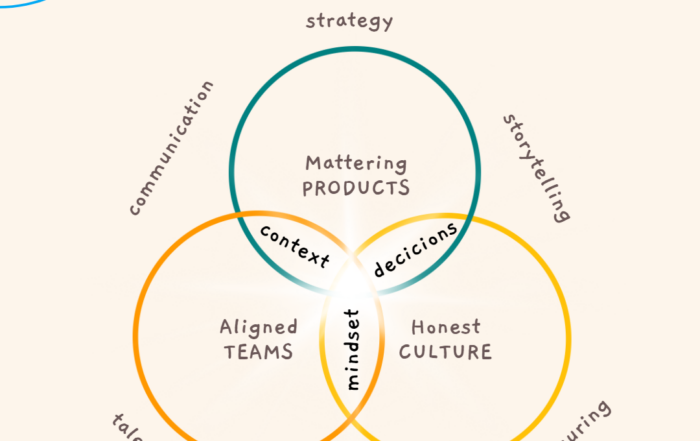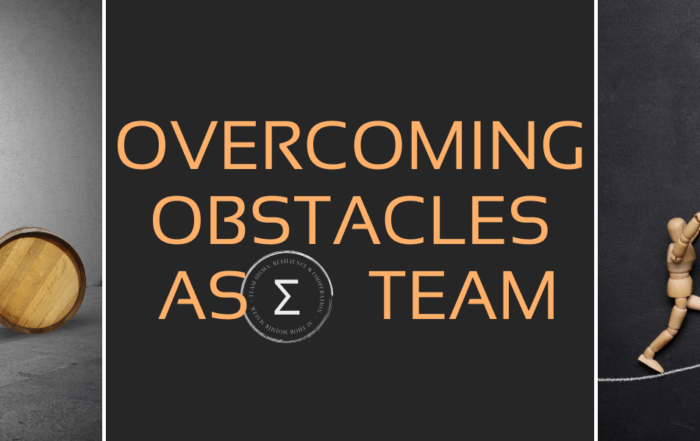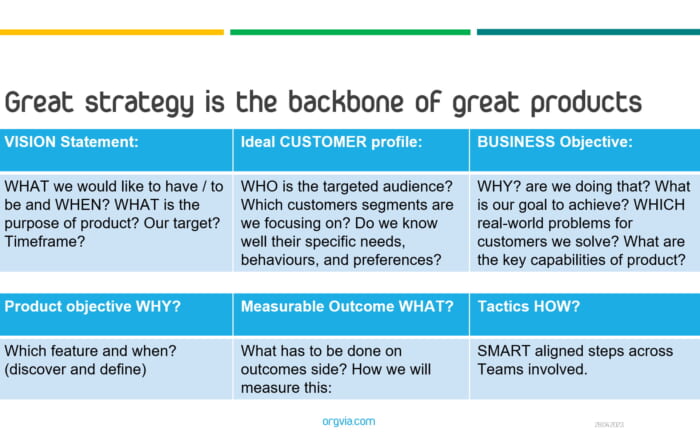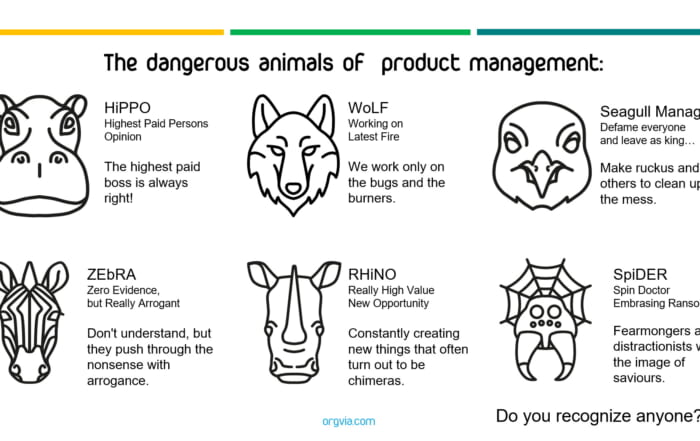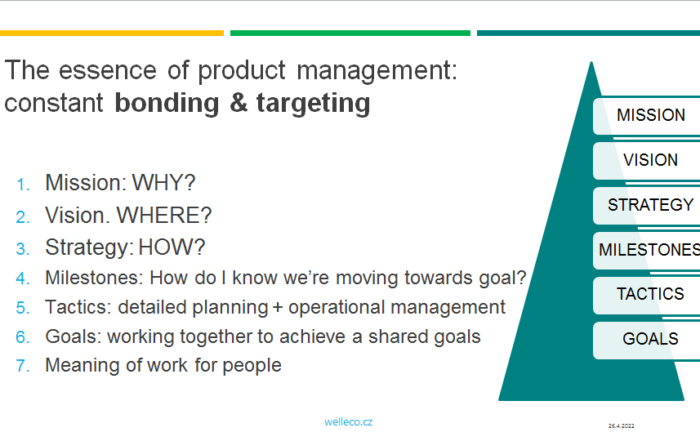TTT: from forceful collab to motivated coop
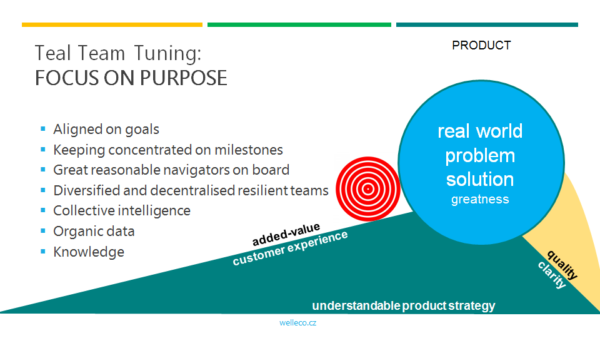
Great products can be done only by great tuned teams. It’s time to leave old concepts about how humans innovate and get teams’ collective consciousness to the next level. Thx to powerful modern tools and advances in psychology and neuroscience we can move on from the era of digitalization of old organisation processes towards a new era of responsible cooperation in resilient decentralised networks of teams.
Teal Team Tuning:
💡🧠❤️🎯🍀
There are many theories on how to build and adopt great products on the market, but many of them forget the core. It’s not about feature mania, but about understanding well the real business practice and how the product can help to solve real-world problems and change paradigms. All this is hardly influenced by team culture – how the teammates share/use knowledge, focus on essentials, adopt collective force and intelligence and which culture prevails in team cooperation: force & juicing or internal motivation to achieve the purpose of creation? The majority of product teams failed on both and are not able to cope with all the risks on their path, mainly to challenge and get out of the way all dangerous animals of product management and data mess.
Product management swamps are full of methodologies and improvement papers from consultants, but in reality, the everyday practice and understating of customer base needs and their real challenges is crucial.
It’s not about processes, but about keeping a balance between chaos and order thanks to underlaying facts for decisions and pulling multiple ropes to the prevailing required direction. The majority of product teams lose direction and don’t solve real-world customer problems and waste a lot of energy into internal fights. For a great product solution, you need not only to focus on the product itself, but with the same importance on the tuning of teams working on it.
Product management is about everyday tuning of diverse specialised teams and this means big pressure on understanding between them, high quality of shared knowledge and keeping all teammates focused on achieving milestones in synchro.
Many organisations do not mitigate actively risks and end up with these
PROBLEMs:
- low quality of products
- budget exceeded
- not able to keep the innovation tempo of competitors
- low motivation of team members
- too many long meetings with too many people
- solving backlogs, not benefits
- thinking in the black box
- everyday problem makers
- distracted management
- data smog overload
So what is crucial to focus on and don’t end up with your flagships full of ballast on the shallow?
Solve everyday targeted product management and team tuning at the same time.
Targeted / Teal Team tuning focuses on shared goals over organisations and cross over teams cooperation thx to integrated application ecosystem.
TTT principles:
- Alignment on goals based on tuned strategy in time
- Keeping concentration on milestones
- Great reasonable navigators on board
- Diversified and decentralised resilient teams
- Collective intelligence
- Organic structured information instead of data smog
- Knowledge in context
If you change the mindset of your teams from task fulfilment to yearning for a great useful product solving real problems you can benefit from these:
BENEFITS:
- great fulfilling of customer’s expectations
- better productivity and quality
- predictive mitigation of risks
- competitiveness
- innovute
The innovation in product management will be enabled mainly by the transition of organizational structures toward “Competence Clusters”. The full potential of teams can be achieved by proactive strengths empowering of teammates. All this can happen thanks to rising new cooperative ecosystems and integrated applications. Concentration and advances in data science will enable much deeper facts-driven decisions, but in this decade, the value of brave and informed innovators will grow, because of risk of mediocrity. The future will belong to honest and brave resilient organisations living the era of new cooperative ecosystems.
I’m here to help honest companies to build up great products thanks to tuned teams. In the practice, of course, you cannot switch a single switch at once to solve everything, but you can go through deep transitions of the whole organisation. It’s important to take into your mind all specifics and individualities in teams and help them to flourish. From our childhood and rigid amber school systems organisational model of past centuries, we are used to submission and working under the pressure from authorities in hierarchical pyramids crossed by matrix control. But as we left slavery behind it’s time to move forward also with the management principles of how to run organisations and flourish teams and teammates. The future will belong to those who will align achievement around purpose a will not leave able experts behind. All it’s about moving from juicing of human resources to the flourishing of human talent and effective cooperation in dynamical nets based on goals and not position labels. A transformation away from systems built on a rat race for profit at all costs, drowning human potential in superior/subordinate games and afflicting people with separation. The future of successful organizations will be based on higher purpose, self-management and wholeness. Can corporate bosses-in-waiting repeatedly repaint pyramids of power and build themselves and them on their heads 😉 – the future will belong to decentralized collaborative networks – people and teams – thanks to state-of-the-art technology and AI development.
Are you brave enough to move on and not to sit still on your warm chair? If you want to have an experienced partner to help you with this transition and become a more competitive solution provider to customers and leader in your industry – contact me.
The Importance of Psychological Safety in Teams
This article explores the concept of psychological safety and its role in building a resilient and cooperative team culture. It could provide tips for creating a psychologically safe workplace environment and highlight the benefits …
Product Leadership that Matters
Product management is a multidisciplinary profession and is still in its infancy in many companies. It does not have the importance it deserves or needs to be addressed by most companies. Many companies have sections/divisions …
Overcoming Obstacles: How to Navigate Challenges as a Team
This article provides strategies for overcoming common obstacles and challenges that teams face, such as conflicts, communication breakdowns, and unexpected setbacks. It could include tips for building resilience and teamwork in the face of adversity. …
Excelent strategy is the backbone of great products
Strategy is the guide to choosing what to do by priorities and guardian for making decisions in an environment with limited resources. Every good strategy has to have understandable milestones and …
Successful product managers are leaders, not bureaucrats!
Why are so many developers, designers and bosses constantly arguing with product managers or often waving their hands at nonsense instead of actively seeking solutions together? In my experience, it's often a lack of respect …
Mission, vision, strategy, milestones, and what’s the point?
I may start this article from the end, but in my experience from decades of practice, I will start with the essentials: Terminology. Unfortunately, many companies underestimate the alignment of the basic terminology teams use …


